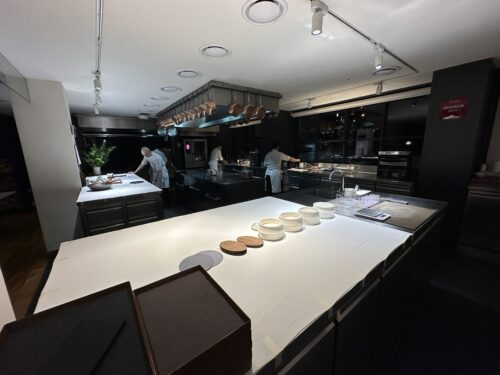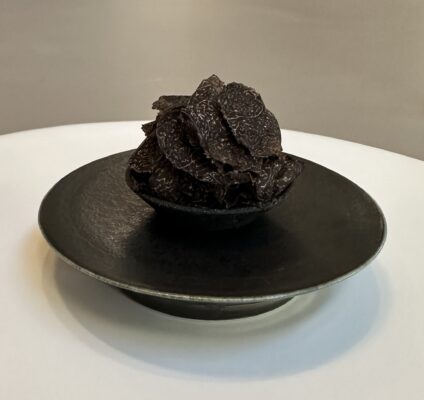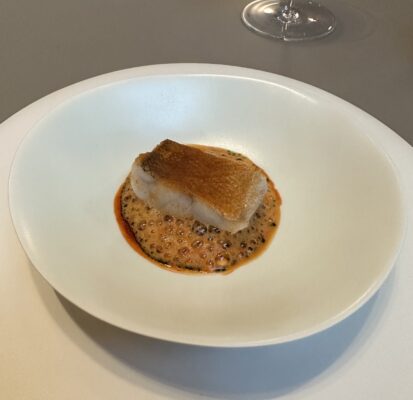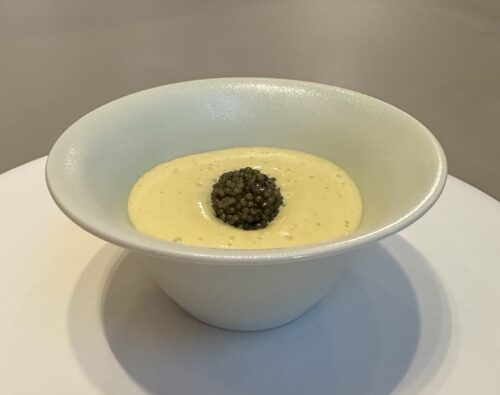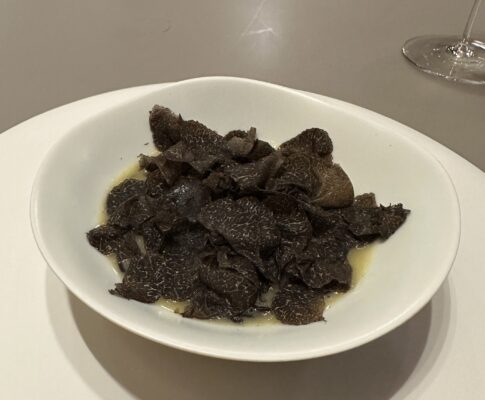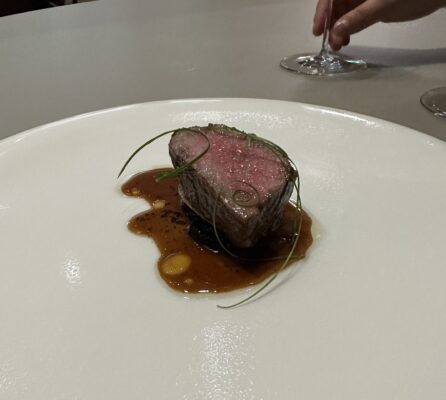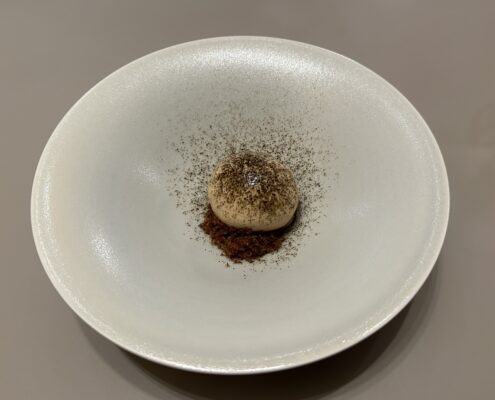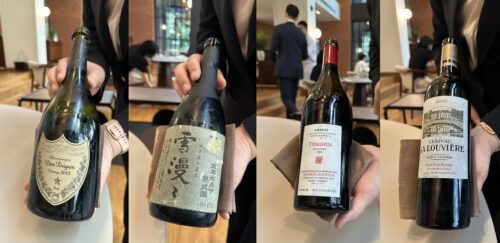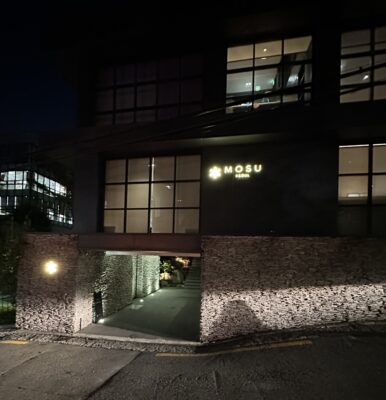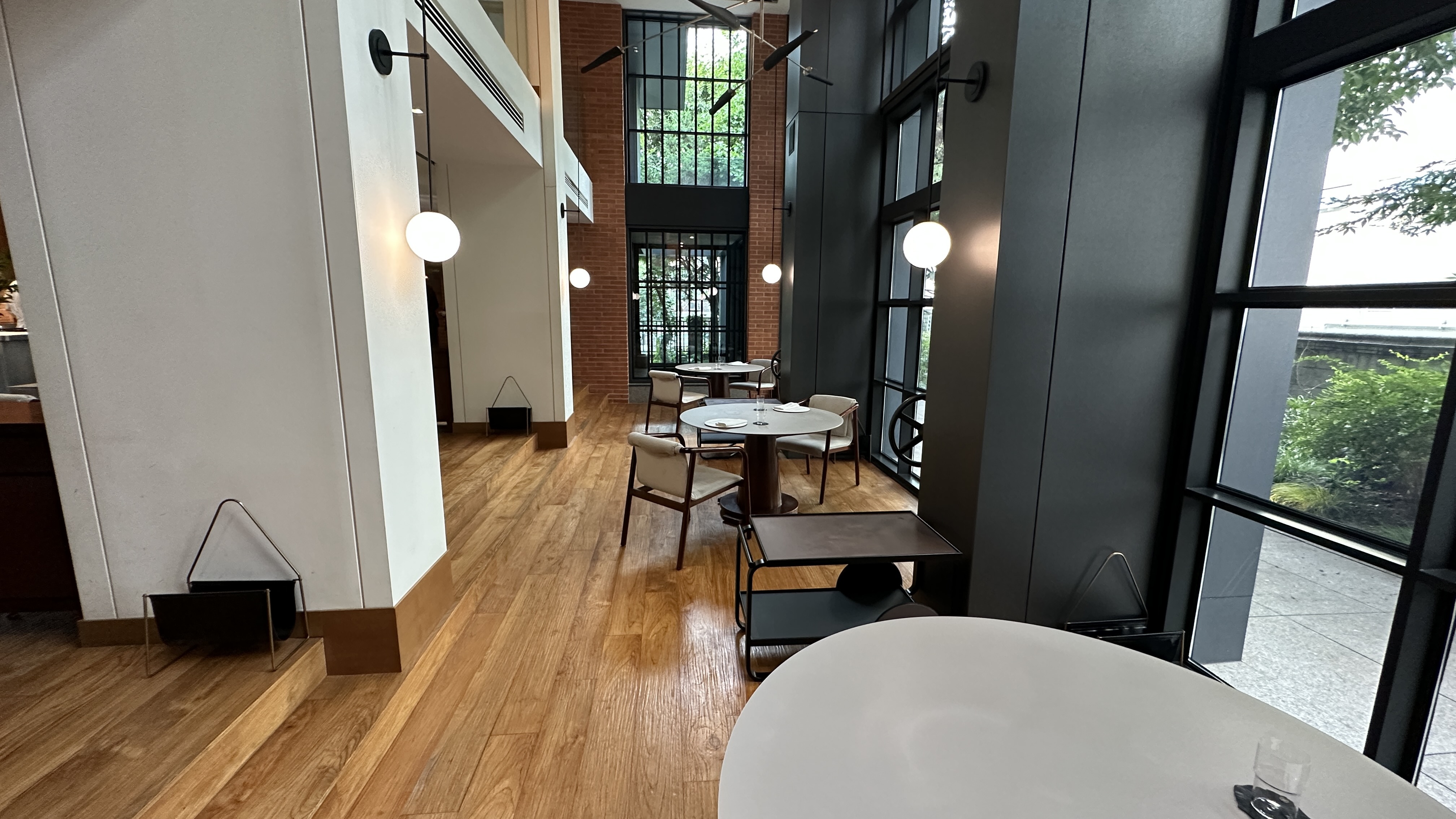
Mosu
45 Itaewon-ro 55ga-gil, Yongsan-gu,
Seoul, 04348, South Korea
+82 10-9014-1696
Official Site
Seoul, the vibrant capital of South Korea, stands as the nation’s gastronomic epicenter. A paradise for food enthusiasts, it offers an impressive range of culinary experiences, from bustling night markets to cozy, family-owned eateries. This dynamic megacity is home to numerous Michelin-starred establishments and globally celebrated restaurants. Yet, one name truly stands out: Mosu, currently the only three-Michelin-starred restaurant in both Seoul and South Korea.
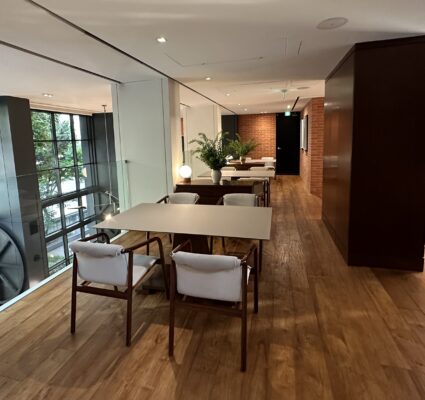
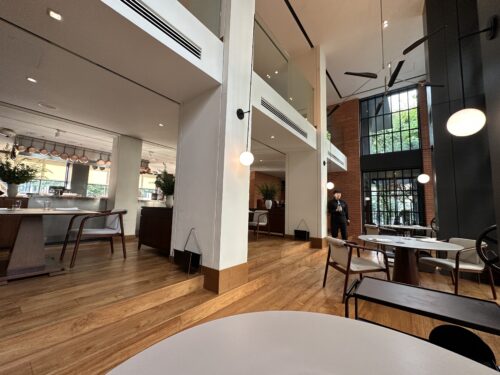
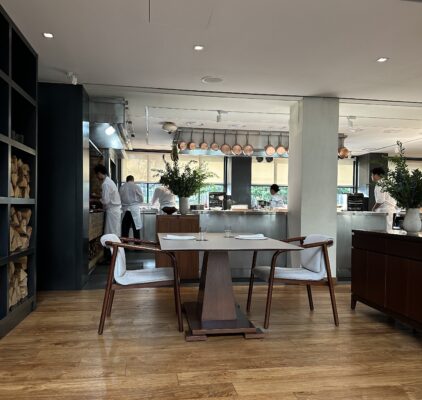
Mosu is helmed by Chef Sung Ahn, a South Korea-born culinary virtuoso who moved to the United States in his teens. There, he honed his craft in some of California’s finest kitchens, including Urasawa (two Michelin stars in Los Angeles), The French Laundry, and Benu (both three stars). Chef Ahn opened Mosu in San Francisco in 2016, earning a Michelin star within months. However, a year later, he closed the restaurant, returning to Seoul to be closer to his family. Mosu reopened in Seoul in 2017, immediately receiving one Michelin star in 2018, followed by a second a year later. By 2022, it had reached the pinnacle of culinary excellence with its third Michelin star.
Located in the trendy Itaewon district, Mosu is discreetly nestled among boutique shops, blending seamlessly into its stylish surroundings. The bi-level space exudes minimalist elegance. Oversized, uncovered tables are generously spaced for privacy, emphasizing a sense of calm sophistication. The main dining room on the first floor feels expansive, featuring an open kitchen with soaring ceilings and floor-to-ceiling windows, creating a serene yet exclusive atmosphere.
Open for lunch and dinner, each service offers its own tasting menu. I visited for dinner, which came at a cost of 370,000 KRW, payable in full upon reservation. The meal commenced with a welcome drink of jasmine and summer herbs—a refreshing prelude to awaken the palate. What followed was a parade of small bites that arrived in rapid succession, setting a high standard for the evening.
Small Bites:

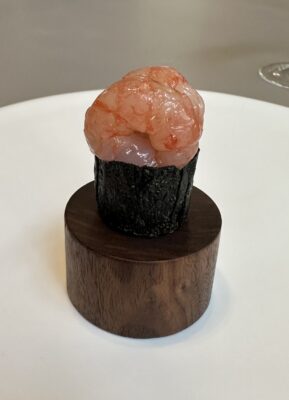
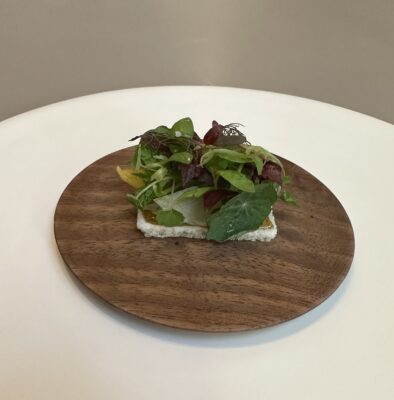
The first bite featured sweet shrimp with crispy seaweed and egg salad, a delightful combination that was both delicate and flavorful. Next was a rice cracker adorned with vibrant, fresh herbs and vegetables, delivering a burst of freshness. A skewer of carrots, tomato, and eggplant drizzled with olive oil sauce followed, packing a profound and compact flavor. The truffle tart, crafted with a squid ink base and filled with Korean Hanwoo beef tartare, was a standout, offering an earthy truffle essence paired with the richness of the beef. The final small bite, a taco of abalone with seaweed compote, delivered a delightful crunch and a chewy texture, with a squeeze of lime elevating its flavors. These expertly crafted bites started the dinner on an exhilarating note.
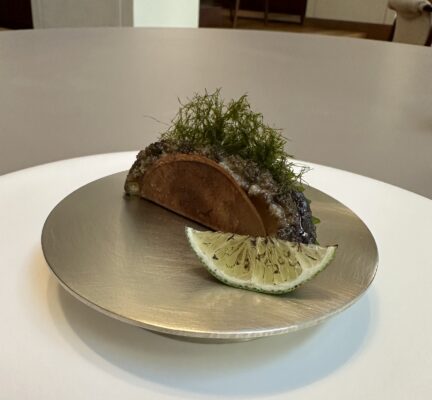
The official first course, toasted sesame with amaranth, presented a sphere of sesame and tofu resembling a large dumpling, filled with creamy, briny uni. A touch of wasabi added a hint of spice, balanced by the sweet notes of dashi. Next was the bread course, a surprising sourdough ice cream served atop oil and balsamic vinegar. The ice cream captured the essence of sourdough bread, with toasted quinoa providing a textural nod to its crust.
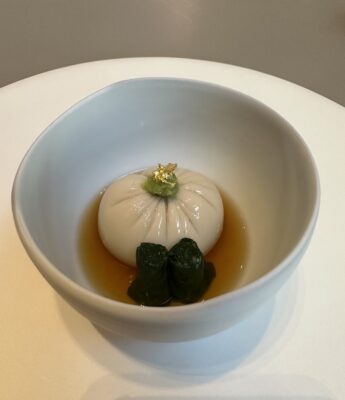
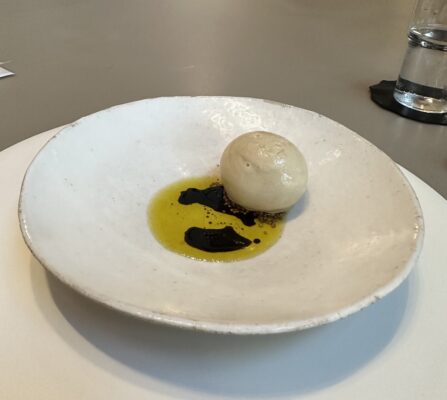
The following courses were equally remarkable. The tilefish in capsicum, sourced from Jeju Island, was flawlessly tender with a hint of fattiness. Its sauce—a medley of paprika powder, shishito chili, and anchovies—offered a vibrant interplay of pungency, salinity, and spiciness. Then came the sweet corn custard, a dish as smooth and creamy as it was flavorful. Hidden beneath its silky surface were succulent scallops, while a topping of decadent caviar added a perfect touch of briny luxury.
The fresh water eel “kobayaki”, introduced earlier in the evening as a tartin, finally made its appearance. Traditionally a sweet pastry, this version was given a savory twist. The tartin’s caramelized, crispy crust paired beautifully with the tender, subtly sweet eel filling. Next came the ember toasted acorn noodles, a pasta dish featuring acorn noodles in butter sauce, crowned with generous shavings of black truffle. The butter sauce and truffles created a rich, aromatic harmony that was deeply satisfying.
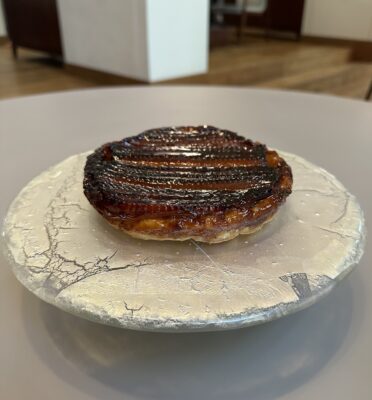
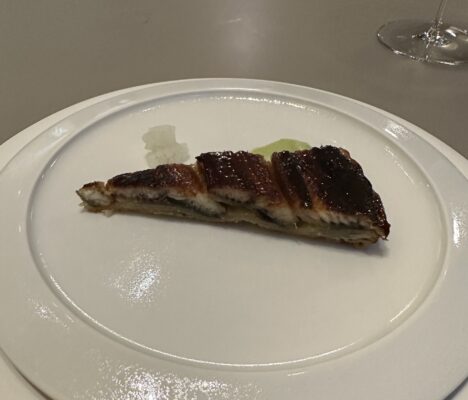
For the main course, the “Hanwoo” & clams, was a testament to Korean culinary excellence. This native breed of cattle, renowned for its superior quality, was prepared to perfection—tender, juicy, and intensely flavorful. A clam sauce infused with cherry seed oil added layers of depth and complexity, elevating the dish to new heights and concluding the savory courses with a flourish.
Dessert, fittingly named “Small Sweets,” unfolded in several delightful acts. A palate-cleansing chamoe sorbet, made from Korean melon, refreshed the senses with its crisp, fruity notes. A Kampuchea peach with fermented yellow rice cake offered a unique texture and subtle flavor. The choux pastry, filled with kombu cream jam, combined delicate sweetness with umami undertones. The final dessert was a bold caramel ice cream, intriguingly paired with onion and leek. The savory elements tempered the caramel’s sweetness, creating an unexpectedly balanced profile. Accompanying my tea was yakgwa, a deep-fried Korean pastry infused with ginger and honey—a fittingly indulgent end to an extraordinary meal.
“Small Sweets”:
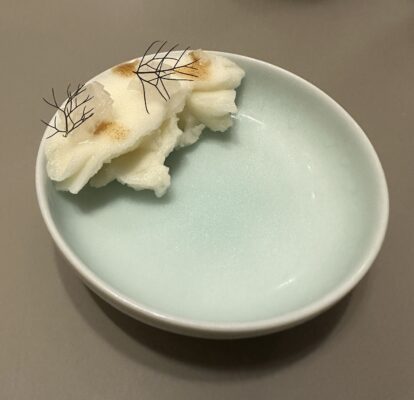
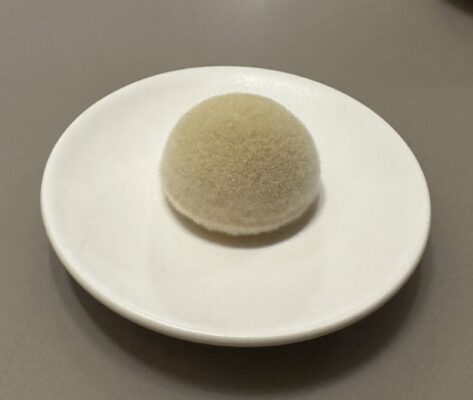
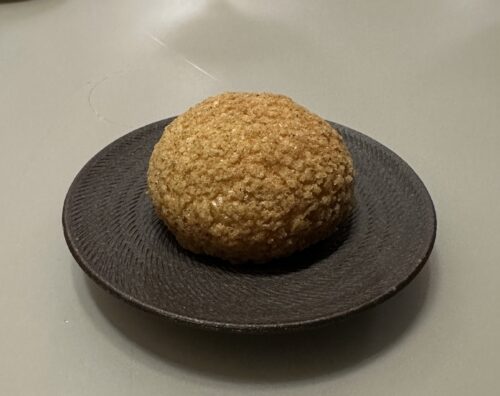
Mosu’s tasting menu exemplified precision and artistry, seamlessly blending Chef Ahn’s American influences with local Korean ingredients. Each dish was thoughtfully composed, with some flavors offering comforting familiarity and others an exciting sense of novelty. The meal was expertly paired with the restaurant’s standard beverage selection, featuring French wines, a South African white, Japanese sake, and Korean spirits—all enhancing the food beautifully.
Drink Pairing:
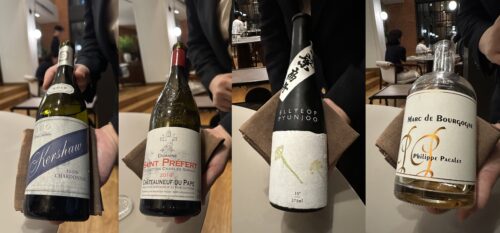
Service was impeccable. The staff at Mosu were warm, professional, and well-versed in each course, confidently explaining the dishes in fluent English. The relaxed atmosphere, contrasting with the formality of the service, created a comfortable yet refined dining experience. Notably, the restaurant does not enforce a dress code, which is uncommon for fine dining in the West, reflecting Seoul’s unique dining culture.
An evening at Mosu is surprisingly affordable compared to similar three-starred venues in the U.S., Europe, or other Asian cities. With dinner and beverage pairing totaling less than $450, it offers remarkable value.
With the closure of Gaon and the demotion of La Yeon, Mosu remains the nation’s sole three-starred bastion. Though temporarily closed for relocation, the restaurant is expected to reopen in late 2024. When it does, there is little doubt that Mosu will reclaim its status as Seoul’s premier fine-dining destination, offering an experience truly worth the journey.

